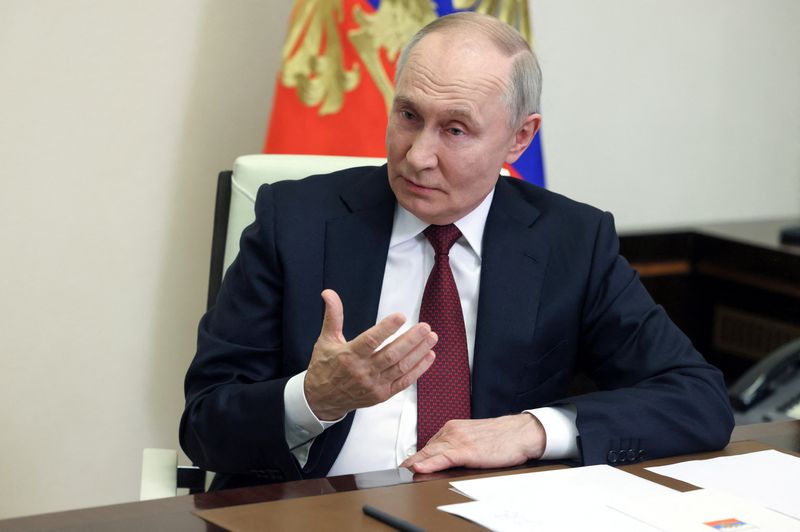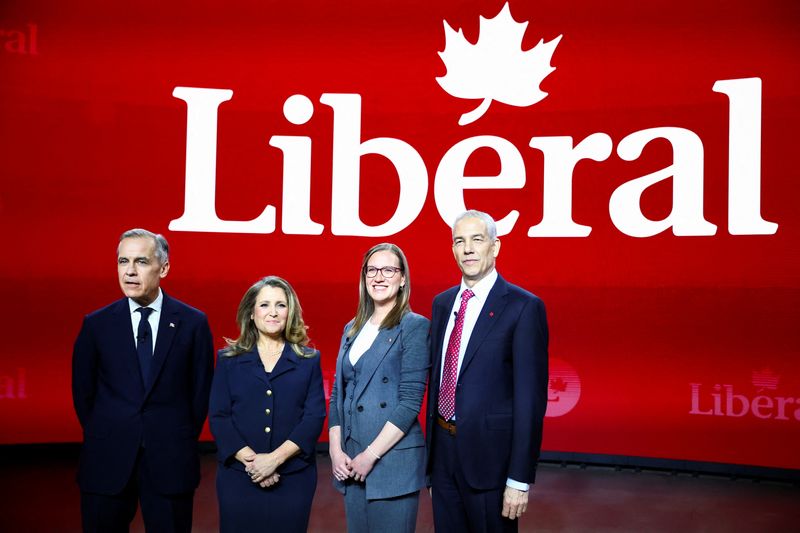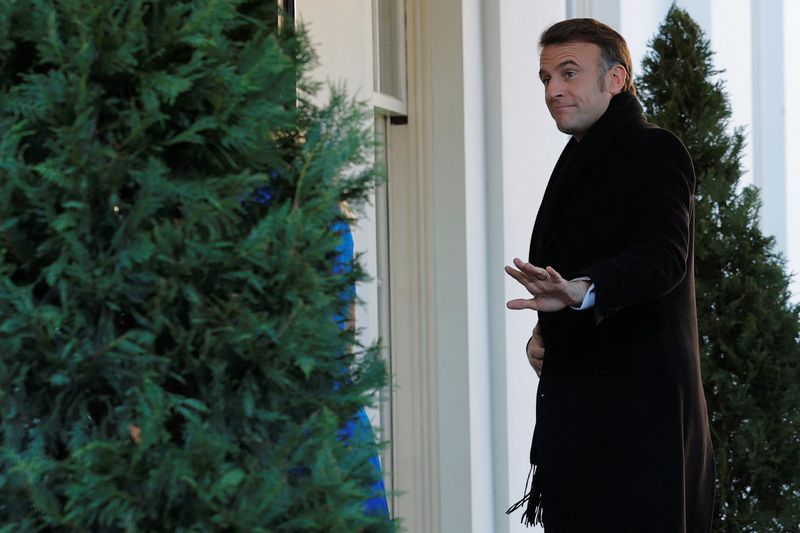Green diplomacy faces first big test since Trump’s return at Rome nature summit
Rich and poor countries are battling over who will fund nature conservation in the shadow of a radically anti-green U.S. administration.
ROME — Three days. That’s how much time world countries have to agree on a recipe to channel billions into biodiversity conservation.
But to reach a deal at talks that kick off at the headquarters of the U.N.’s Food and Agriculture Organization in Rome on Tuesday, they will first have to restore trust in multilateralism at a moment when global diplomatic tensions are at fever pitch.
It was always going to be difficult. Negotiations during the first round of the United Nations’ COP16 biodiversity talks in Colombia last November collapsed without a deal on financing nature restoration in poorer countries, leaving bad blood among governments of the global north and south. Those fundamental disagreements remain.
But it will be made doubly hard by escalating geopolitical and trade disputes that are forcing countries to shift their priorities — and by a new United States administration that is openly hostile to environmental multilateralism and has taken a sledgehammer to U.S. foreign aid.
Despite all this, negotiators are hopeful a deal can be reached to help slow the escalating environmental crisis.
“Even with a very fragmented geopolitical landscape, with a world increasingly in conflict, we can still get agreement on some fundamental issues. And one of the most important is the need to protect life in this crisis of climate change and biodiversity,” Colombian Environment Minister Susana Muhamad, who is in charge of steering the talks, said on Monday.
Astrid Schomaker, the executive secretary of the U.N. Convention on Biological Diversity (CBD), made a similar point.
“The biodiversity and climate crises are unabated and fast accelerating. So this is not a moment where you can step back from the commitments you have made,” she told POLITICO.
“And one might see a kind of heightened sense of responsibility in many parties to demonstrate that multilateralism works at a moment when it comes kind of under attack,” Schomaker added.
The return of President Donald Trump to the White House “disrupted multilateralism” and is likely to impact the talks in Rome, even though Washington never ratified the biodiversity treaty and is therefore not part of negotiations, said Agnès Hallosserie, director of the biodiversity program at the Institute for Sustainable Development and International Relations (IDDRI), a French think tank.

That’s because the U.S. has been a major contributor to international biodiversity finance through the USAID program and the Global Environment Facility.
For Hallosserie, this makes it “clear” that Trump’s election will impact how fast the Global Biodiversity Framework — which was agreed in 2022 and set targets to stop and reverse biodiversity loss by mid-century — can be implemented.
Indigestion in Cali
Conflict between rich and poor countries peaked on the last day of the talks in Cali, when Muhamad, the president of COP16, presented a compromise text that was unacceptable to either side.
At the heart of the dispute is the key question of how to close the $700 billion finance gap to keep the natural world healthy so it can provide people with food, clean air and water, help mitigate climate change, and prevent natural disasters.
Developing countries have been pushing for years for the creation of a new global fund for biodiversity which would be a one-stop-shop for nature finance and would make it easier for them to access funding. But rich nations have consistently rejected this proposal, fearing it will add red tape and put too much onus on governments rather than on the private sector to fund nature restoration.
Yet the idea of establishing a new financial instrument remained central in Muhamad’s compromise, further polarizing the discussions.
“The fact that the COP [in Cali] ended without an agreement on a finance strategy, especially now that we only have five years remaining to implement this [global biodiversity] framework, was incredibly disconcerting,” said Brian O’Donnell, director of Campaign for Nature, a non-profit.
“Finance is really the most essential ingredient for success,” he added. Without it, “much of it is just rhetoric.” He warned that finding a solution will require political engagement by both environment and finance ministers.
Since the meeting in Colombia, regional and bilateral talks have sought to converge the positions of the two camps. But despite some progress, clashes are expected in Rome as the new financial mechanism takes center stage, according to negotiators and observers.
“We don’t expect there to be a radical change in countries’ positions compared to what we saw in Cali,” said IDDRI’s Hallosserie, adding she also didn’t expect countries to “suddenly say ‘OK, let’s stand together hand in hand and find a solution to make up for Trump’s absence’.”
But the CBD’s Schomaker, who is assisting the COP president in the negotiations, said she is “optimistic” and wants to believe that “the differences are not that large and … are certainly not unbridgeable.”
A deal better served cold
On Friday the COP16 presidency put a new compromise on the table as part of a reflection note underlining the “polarized” discussions and summarizing the main tension points among countries.
But a French ministry official briefed on the negotiations warned against repeating the same mistakes as in Cali.

“You have to be careful not to think that if you present the same recipe, you’ll be able to make a different cake,” he said. “When a proposal has been rejected, it’s logical that, in a negotiation, you try to change the proposal to find a compromise,” he added, referring to the idea of creating a new financial instrument that is unacceptable to rich countries.
The compromise of the COP16 presidency seems to offer some flexibility, but still promotes the idea of a new financial instrument under the condition that it improves the current biodiversity finance architecture.
The presidency proposed that governments agree, over the next three biodiversity COPs, on a roadmap to “assess and improv[e] the performance of existing [financial] instruments” and that they eventually “designat[e] or establish a dedicated global instrument, or set of instruments” by 2030.
Whether this compromise will be enough to bridge the positions of rich and poor nations is now up for discussion this week in Rome, but it will require a lot of convincing from the Colombian presidency.
What's Your Reaction?


























:quality(85):upscale()/2024/09/09/785/n/1922283/901e710666df358b373de2.40207443_.jpg?#)
:quality(85):upscale()/2024/07/23/904/n/1922283/dc92642c66a0159ee98db4.72095370_.jpg?#)
:quality(85):upscale()/2024/07/10/842/n/1922283/8fb902af668edd399936b2.17277875_.jpg?#)
:quality(85):upscale()/2024/06/07/909/n/1922283/82a389f8666372643f2065.06111128_.jpg?#)
:quality(85):upscale()/2024/06/07/726/n/1922283/10bee64e666334778cf548.63095318_.jpg?#)
:quality(85):upscale()/2025/02/03/788/n/1922283/010b439467a1031f886f32.95387981_.jpg)
:quality(85):upscale()/2025/01/08/844/n/1922398/cde2aeac677eceef03f2d1.00424146_.jpg)
:quality(85):upscale()/2024/11/27/891/n/1922398/123acea767477facdac4d4.08554212_.jpg)
:quality(85):upscale()/2024/12/02/919/n/1922398/2b4b75f6674e20edcc99c3.42112799_.jpg)
:quality(85):upscale()/2024/10/29/690/n/1922398/e9bec6b46721006258d949.01358236_.jpg)










